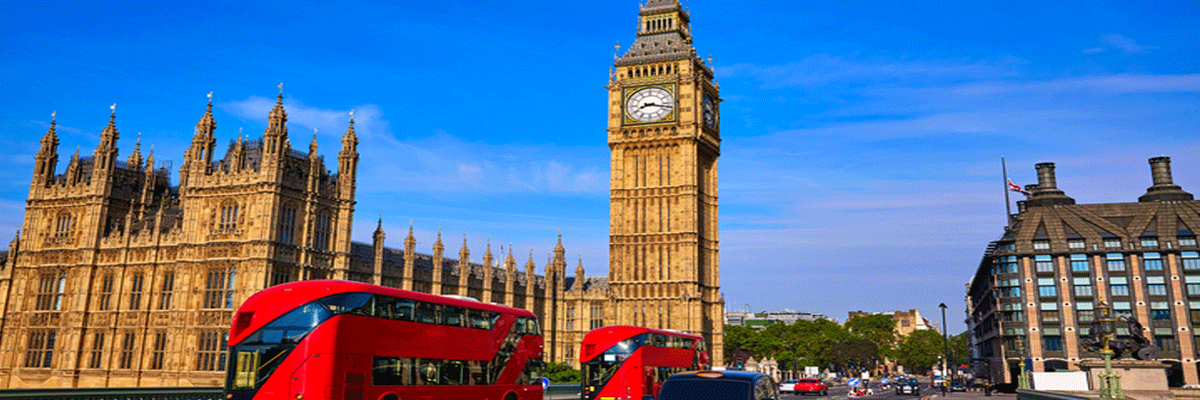‘Chaos’, ‘Crisis’, ‘Meltdown’, ‘Mayhem’, ‘Farce’, ‘Humiliation’… these are just some of the headline words the media has used to describe a quite extraordinary week in the House of Commons that has left the future of Brexit wholly uncertain just days before Britain is due to leave the European Union. No doubt many voters, looking on far away from Westminster, are using even choicer language. Nothing like it has been seen before. It’s not just the government’s handling of the most significant policy issue the nation has faced in decades that has drawn these withering epithets. It’s whether they now accurately describe our whole governing process. Are we witnessing the breakdown of parliamentary government? Or should we look at what’s been happening in a completely different way: as the welcome revival of the power of individual MPs, long-derided as mere lobby fodder, to hold the executive in check?
The prosecution case is easy enough to make and it targets both government and parliament. The government has proved itself incapable of building a parliamentary majority for the orderly Brexit all voters, whether Leavers and Remainers, had a legitimate right to expect after the 2016 referendum determined that Britain should quit the EU. And parliament, brilliant at expressing what it is against, has shown itself useless at independently building any sort of consensus on the way forward that might make good the government’s failings.
The result has been the circus of confusion, indecision, shouting, acrimony, fury, charges of betrayal and lost prime ministerial voice that the world, aghast, has witnessed in the House of Commons this week. It has involved a government seeing its principle policy defeated not once but twice by three-figure majorities, yet persisting in arguing, as though nothing had happened, that the policy remains the only show in town and preparing to bring it back to MPs for a third and even a fourth crack. It has seen cabinet ministers failing to support government policy, supposedly enforced by a three-line whip, yet keeping their jobs. It has seen the Brexit Secretary arguing the government’s case at the Despatch back and then voting against it himself on a free vote. It has seen backbench MPs trying but failing to seize control of parliamentary business from the government, leaving everything in limbo. And it has seen the official opposition abstaining on a vote to bring about one of its own policies, namely a second referendum.
Merely two weeks before Britain is still legally due to leave the European Union but without a withdrawal deal, an outcome virtually everyone regards as potentially catastrophic, it is not controversial to summarise what’s been going on as an epic shambles. It’s not controversial because that’s how all but a very few of the participants themselves see it. Rarely have members of Parliament seemed so dejected; and not within living memory have so many of them been so fearful of what all this is doing not just to their own reputations but to the public’s trust in the whole democratic system.
There is, of course, a prosecution sub-case directed solely at the Prime Minister for her handling of the issue. Her more charitable critics will acknowledge that she inherited a very difficult political problem: delivering Britain’s departure from the EU when no effective preparations had been made by her predecessor in case the referendum produced the ‘wrong’ result. But, they say, she has consistently made her own predicament worse.
She called an election with every expectation of increasing her majority so that she could securely call all the shots on Brexit herself but then ran such a cack-handed campaign that she lost her majority entirely. As a result, many of her shots became blanks. And then, instead of fashioning her Brexit policy around the need to create a cross-party majority without which it would be bound to fail, she concentrated exclusively on the vain attempt to keep her fundamentally disunited party together, a strategy that was always bound to fail since the Tories’ divisions on Europe are beyond healing. And she has done all this, they charge, with a blinkered vision, a total incapacity to hear let alone understand other points of view, a pathological aversion to compromise and a tin ear. She is accused of being the sort of general who marches into a minefield even though she knows it’s there because that’s the ‘way forward’ and because she lacks the wit and cunning to find a way round it. The result is where we are now.
That, then, is the outline of the prosecution case. But is there a defence case, not just of the Prime Minister, but more generally of the way government and parliament have been behaving? In short, is there a case for saying that what we have been witnessing is, despite appearances, not so much a shambles but rather the proper exercise of parliamentary democracy, albeit in difficult circumstances, but nonetheless something we should value?
Supporters of Theresa May would say that pious talk of ‘reaching across’ to other parties is always easier said than done. That’s because opposition parties, especially the official opposition with an eye on defeating the government and winning power itself, are never going to feel that it’s their job to help a government pull its irons out of the fire. Their job is to get rid of the government. In any case, her supporters say, the compromises that would have been necessary to carry out a ‘reaching out’ policy would have split the Tory Party and probably have been the end of Theresa May. In short, ‘reaching out’ would have been its own minefield.
But the main reason why the Prime Minister’s efforts to get Brexit through without a majority were never going to be pretty was because the choices facing MPs weren’t binary (forcing them to make up their minds for one). They involved at least three options: backing her Brexit deal, holding out for a ‘harder’ deal, or trying to reverse the referendum result and keep Britain in. That was a recipe for endless indecision, for MPs constantly throwing things out but never settling on something a majority could support. The outcome has been what we have seen this week.
In short, they say, the pantomime of this week has been not so much Theresa May’s fault as the inevitable consequence of the predicament she found herself in. She’s not so much to be condemned as congratulated, her supporters claim, for hanging on in there despite having to face the indignity of endless defeats, of having cabinet colleagues defy her without her being able to sack them, of being accused of myopic stubbornness and of being unable to take ‘No’ as an answer, and much else, yet still being there, doggedly pursuing her goal. And, of course, the game is not yet over: she may still pull it off and see the Commons ultimately, if grudgingly, back her deal.
What, though, of the defence case for parliament? It can be simply put. Members of parliament are elected precisely to exercise their judgement and to prevent a government from doing anything it wants unchecked. The apparent near-anarchy of events in the Commons this week may, to use an old-fashioned term, have been ‘unseemly’ but it was just MPs doing their job. It’s easy to forget the more usual charge aimed at backbench MPs, namely that they behave like supine lobby-fodder, who just do as they’re told and pick up their expenses. But representative democracy depends on the representatives taking a more active, independent part in proceedings and that’s what we have seen this week. It may be rather unfamiliar but it’s more like how the House of Commons operated in the nineteenth century when party discipline was far less stringent than we have come to expect it. This can be only a good thing, supporters of democracy would argue: government is usually better for it.
But is this defence a bit of a stretch? After all, these are very difficult times. The uncertainty the continuing mayhem has perpetuated is causing business to despair, investment to be stalled, the economy to be forecast to slow and many people to start fearing for their jobs. It has caused our European partners to reach the end of their tether in their attempts to negotiate with us. It has caused the headlines about ‘Crisis’, ‘Chaos’, ‘Meltdown’ and the rest to be what now defines Britain in the world.
“We must be a laughing stock!”, is what you hear on the Clapham omnibus.
So what should we make of the last week in Westminster? And what should we make of Mrs May? Should we admire her or deride her for her handling of Brexit? And, either way, is it, or is it not, soon time for her to go?
Let us know what you think.










